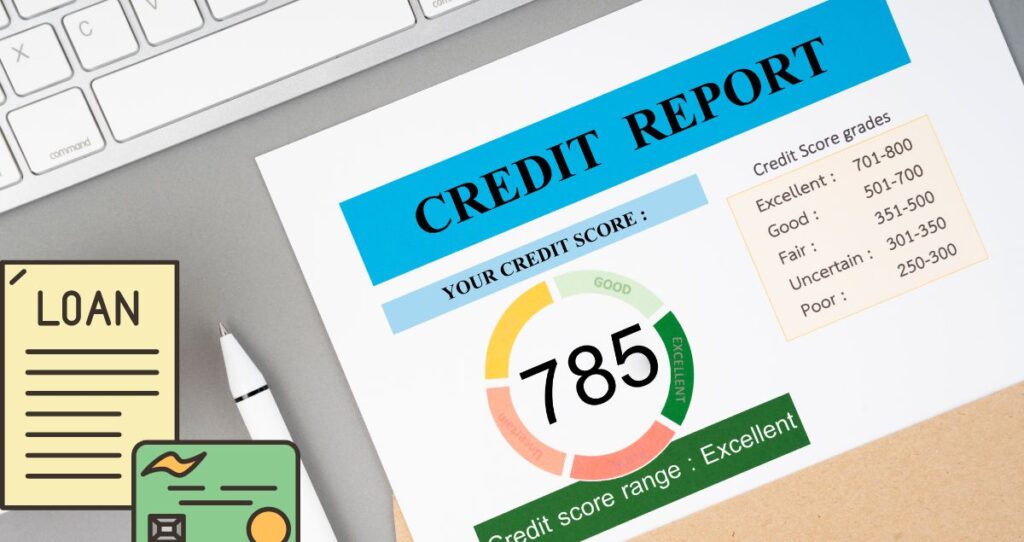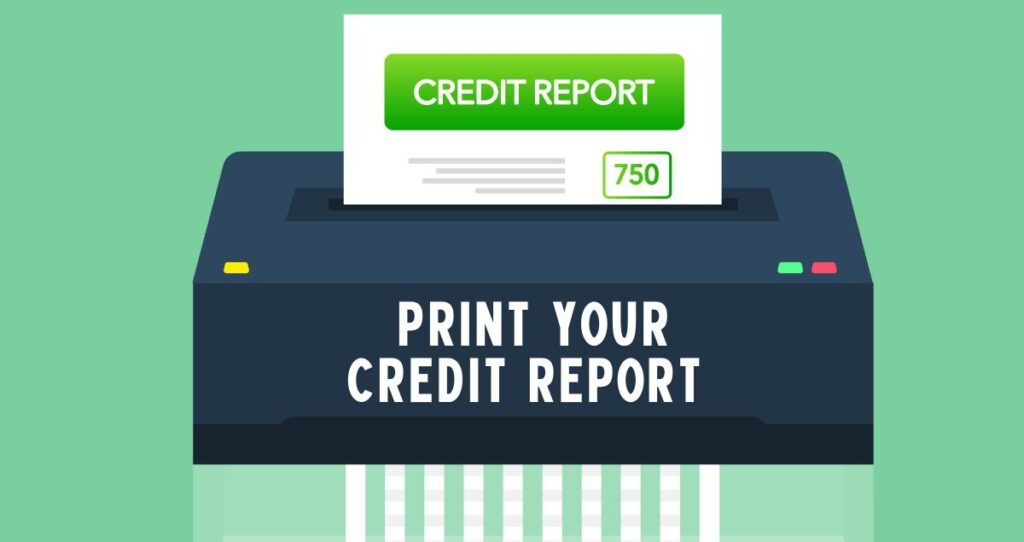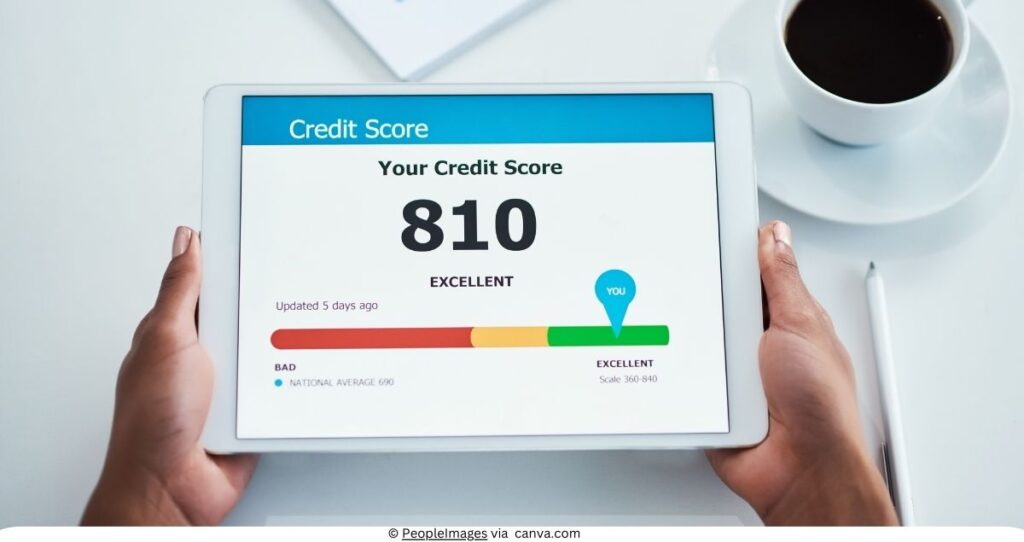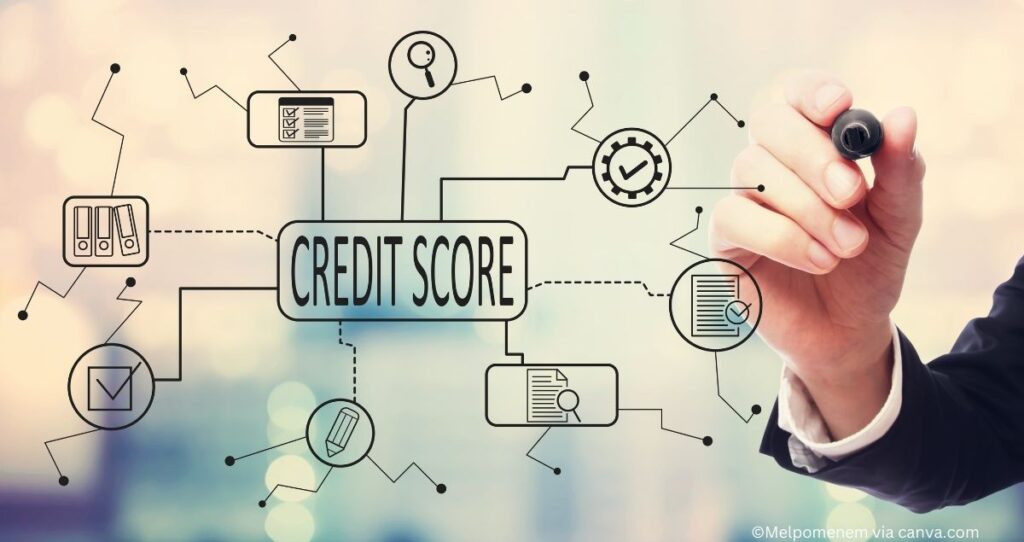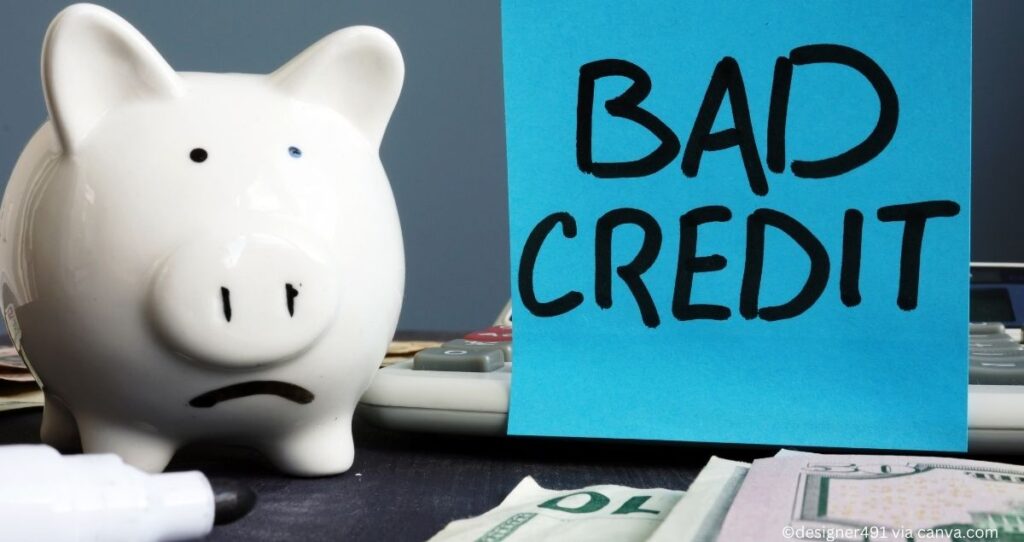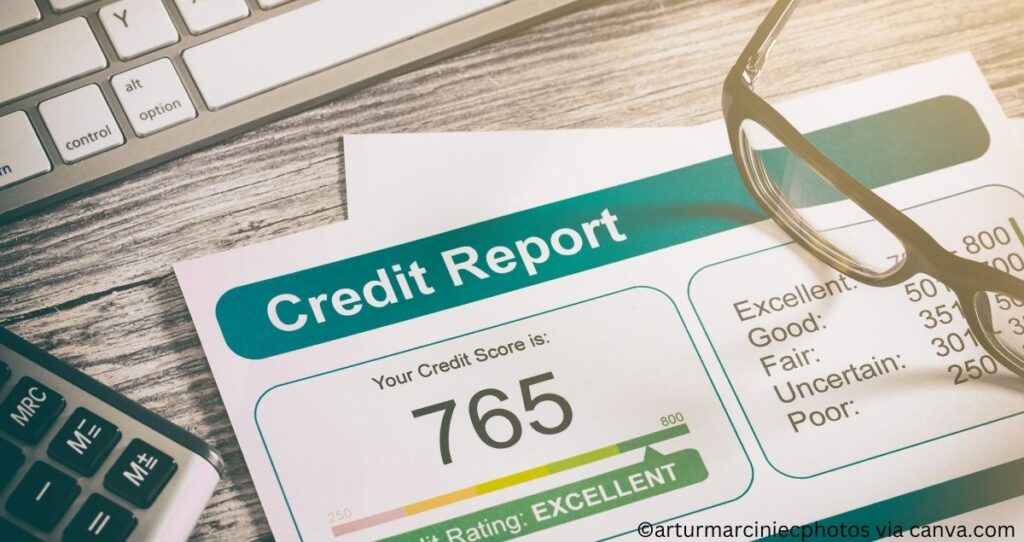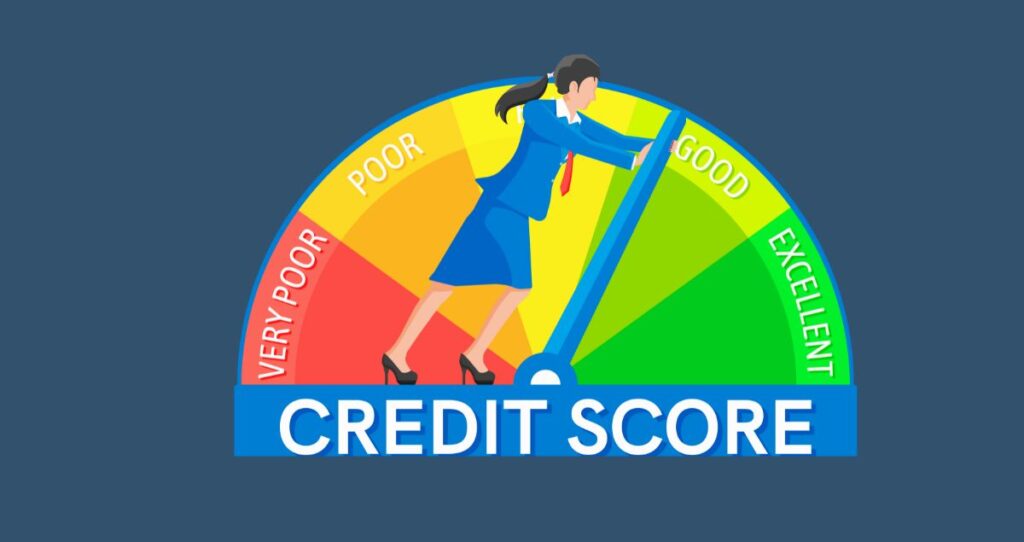Maintaining good credit can be difficult especially when you are facing financial hardships. For example, it is easy to miss a payment, get into default, foreclosure, or bankruptcy due to a loss of a job. Having any of these negative items on your credit report can easily hurt your credit score. If you are rebuilding your credit or want to boost your credit score, there are strategies to rapidly improve your credit score which you can start as early as today. In this article, I will show you simple tips to raise your credit score by yourself and fast.
Improving your credit score involves understanding factors that affect your credit score and how each factor contributes to your credit score calculations. Even if you have a bad credit score or a thin credit file, these credit-building tips can still help you reach a 700 credit score and higher in no time. Check out my guide to boosting your credit score in 30 days and making remarkable changes in your credit standing.
You don’t have to worry about credit builder courses and offers you normally see online. This guide is very simple as it involves credit score-building strategies I used to get an 825 credit score using only 3 credit cards.
Why do you need to improve your credit score?
Before you worry about boosting your credit score, it is best to understand why you need a good credit score.
Lenders such as banks, credit unions, mortgage companies, and other loaning institutions use your credit score to assess your creditworthiness. A good score allows you to qualify for loans and credit cards at lower rates and better terms. You can also qualify for a higher amount when your credit score is excellent with a solid credit history and income to back your loan application.
Credit score application goes beyond loan applications. Most landlords and utility companies use your credit score to determine your eligibility for apartment and business services. You can also qualify for a security deposit waiver when you have a good credit score. Some jobs also require a good credit score especially jobs related to business, finances, and money management.
Factors that affect your credit score calculations
The best way to improve your credit score is to start with factors that affect your credit score. Credit scoring agencies use information from your credit report to calculate your credit score. There are many credit scoring models and each model applies different weight on factors that affect your credit score. On the same token, these same factors are the ones you need to focus on when improving your credit score.
Generally, 6 factors affect your credit score and both the FICO score and the VantageScore use these factors when calculating your score. The following are factors on which your credit score is based and how much each factor impacts your credit score.
- Payment history accounts for 35% of your FICO score and 40% of your VantageScore.
- Your credit utilization accounts for 30% of your FICO score and 20% of your VantageScore.
- Derogatory marks/negative items (foreclosure, bankruptcies, collections, charge-offs, etc) are part of your payment history and each negative item lowers your credit score. For example, a late payment can lower your credit score by up to 180 points and stay on your credit reports for 7 years.
- Length of credit or credit age affects 15% of your FICO score. A combination of your credit age and credit mix accounts for 21% of your VantageScore.
- Credit mix refers to the types of credit accounts you have including installment loans and revolving credit accounts. Credit mix accounts for 10% of your credit score.
- Hard inquiries usually appear on your credit reports when you apply for credit and they account for 10% of your FICO score.
Here are the 8 tips to improve your credit score fast.
Read more: 6 factors that affect your credit score
How to improve your credit score fast?
If you are ready to improve your credit score, here are 8 tips to increase your score fast.
1. Pay your bills on time to avoid late payments
Your credit score is very sensitive and a late payment can drop your score by up to 180 points depending on your score. Additionally, a late payment stays on your credit report for 7 years which makes it harder to recover from it. For this reason, paying all your bills on time is the single most important thing to do to improve your credit score fast.
Even if you cannot pay your bills in full each month, at least pay the minimum requirements for each loan.
Read more: How to avoid late payments on your credit report
2. Lower your credit utilization
Credit utilization refers to how much you owe on revolving credit accounts compared to the total credit limit on your accounts. The credit limit is the maximum amount a lender allows you to spend on the account. For example, if you have a $2,000 credit limit on a credit card and spend $500, your credit utilization is 25%. Keeping your credit utilization low helps improve your credit score as it signals financial stability.
A big mistake a lot of consumers make is to max out all their credit cards and similar accounts and wonder why their credit scores are always low. Just because the lender approved you for $10,000, it does not mean you should spend it. The more of your credit limit you spend, the lower your credit score goes. The opposite is also true. The lower your credit utilization becomes, the higher your credit score goes.
To have a maximum impact on your credit score, keep your credit utilization under 7%. Make it zero if you can. Carrying no balance on your credit accounts saves you money in interest charges and prevents you from accumulating too much debt.
Read more: What is the best credit utilization ratio?
3. Avoid derogatory marks/negative items
Derogatory marks stay on your credit report for 7 to 10 years. Having one or two negative items on your credit report can drop your credit score by hundreds of points and it will take many years to recover from them.
For example, bankruptcy is a common negative item on credit reports and can lower your credit score by up to 200 points. Additionally, bankruptcies stay on credit reports for 10 years which is a long time before they automatically fall off your report. Other negative items/derogatory marks include charge-offs, collections, late payments, delinquencies, foreclosure, tax lien, etc.
According to LendingTree, derogatory marks can stay on your credit report for up to 10 years. Although derogatory marks stay on your report for many years, their impact on credit score fades over time. If you have a derogatory mark on your credit report, using your credit accounts responsibly will help you improve your credit score.
4. Get a 0% APR credit card
Getting a 0% APR credit card can help you improve your credit score. Some people might argue that it is a bad idea to get another credit card if you have a bad credit score.
In my opinion, having another credit card has positive effects on your overall credit rating as detailed below.
A new credit card will increase your credit limit. Getting a higher credit limit can lower your credit utilization which in turn boosts your credit score.
A 0% APR credit card can also strengthen your credit mix which might help improve your credit score.
Having a 0% APR credit card can help you pay off your debt fast. For example, you can stop using high-interest credit cards and use the 0% APR card while paying off your debt since you will not be paying interest on the balance you carry. By paying off your debt, you will improve your debt-to-income(DTI) ratio which might improve your credit score.
5. Avoid hard inquiries
When you apply for credit, a hard inquiry or a hard pull appears on your credit report. What a hard inquiry means is that the lender requested to view your credit profile to access your creditworthiness. As a result, you get a hard inquiry on your credit report.
Each hard inquiry drops your credit score between 5 to 6 points on average. With a responsible use of credit, however, you can regain all your points in a few months. A hard inquiry stays on your credit report for 24 months but it only affects your score for 12 months. To minimize the impact of hard inquiries on your credit score, do not have more than 1 hard inquiry in any consecutive 12 months.
6. Open a credit account as soon as possible
If you want to improve your credit score, you either have bad credit or simply have a thin credit file. A thin credit file means you have little to no credit activities on your credit report. To build a solid credit history and improve your credit score, you need to open your first or second credit account. Usually, getting a starter credit card such as a student credit card is a great way to get started with credit.
The sooner you open your first account, the earlier you can start building the age of your credit. The age of your credit accounts for 15% of your credit score. So, the earlier you start using credit, the faster you can build a credit score.
If you have bad credit, getting a credit builder loan or secured credit card is a great way to rebuild your credit and improve your credit score. Unlike unsecured credit cards, secured credit cards require a deposit which acts as collateral in case you fail to pay your balance.
7. Do not close credit cards you are not using
A big mistake many people make when trying to build credit is to close credit cards they are not using. While it might be tempting to do so, closing a credit card account can hurt your credit score. For example, closing the account can affect your credit mix which accounts for 10% of your credit score. Hence, hurting your credit score.
Additionally, closing a credit card account can increase your credit utilization due to a reduced credit limit which in turn might hurt your credit score. Furthermore, closing a credit card can hurt your credit score due to a reduced age of your credit especially when you close the oldest credit card account.
Instead of closing a credit card account, keep the account open by putting a small monthly recurring bill on it such as a Netlifx fee. This will allow you to enjoy the benefits of the account and improve your credit score fast.
Read more: Is it a good idea to close a credit card account?
8. Have your utility activities reported to credit reporting bureaus
You can take advantage of other bills you pay that have nothing to do with your credit cards. For example, you can get credits for paying your utility, phone, and rent on time. Once reported on your credit reports, these activities can help you boost your credit score.
Another smart way to improve your credit score is to become an authorized user of a credit card account. Some credit card issuers report authorized users’ activities to major credit reporting agencies(Equifax, TransUnion, and Experian). If you know someone with an excellent credit account, get added to the account to start benefiting from an already established credit history.
10. Clean up your credit reports
Cleaning up your credit report is an effective way to improve your credit score and the whole process can be done for free. All you have to do is get a copy of your annual credit reports from each credit reporting bureau and read through it.
The purpose of this process is to review and check the accuracy of information reported to major credit reporting agencies by the businesses you deal with. This is because the information lenders and other businesses report to major credit bureaus is what is used to calculate your credit score. For example, if one of your lenders is reporting an incorrect loan balance, your credit score will get hurt until the error is corrected.
Additionally, if you have finished paying off your debt but it still shows as active debt, it will still affect your credit score. You need to make sure that credit reports reflect reality by reading through them line by line.
If you find inconsistencies in your credit reports, mistakes, errors, fraudulent activities, etc., dispute them to major credit bureaus and your lenders. By correcting these mistakes from your credit reports, your credit score can jump by dozens of points depending on what was removed.
Here is a step-by-step guide to dispute errors and inaccuracies to credit reporting agencies.
What is the biggest factor that affects your credit score?
The biggest factor that affects your credit score is your payment history with a 35% impact, according to myFICO, and 40% of your VantageScore. If you have a bad credit score, it is more likely that you have missed a payment or have negative items on your credit report such as charge-off, collection, foreclosure, bankruptcy, etc. To improve your credit score, you need to start paying attention to your payment activities. Usually, it is best to pay your bills in full each month or at least pay the minimum requirements.
The second biggest factor on your credit score is your credit utilization which refers to how much you owe on revolving credit accounts such as credit cards compared to your total credit limits. For example, if your credit limit is $1,000 and you spent $400, your credit utilization is 40%. A higher credit utilization means you are relying on debt to finance your lifestyle which lowers your credit score. Keeping your credit utilization under 7% or carrying no balance on your credit accounts helps improve your credit score fast.
The bottom line
To improve your credit score fast, focus on the factors that affect your score. Paying your bills on time and watching how much you spend on your credit accounts are primary factors to keep your eyes on. Additionally, avoid activities that can hurt your credit score even further. These activities include excessively getting more credit cards, closing your credit accounts you are not using, etc. Instead of closing an account, put a small recurring bill on the card to keep it open.
More credit score tips
How to get an 800 credit score the easy way?
Will my credit score go down when I make the minimum payments?
